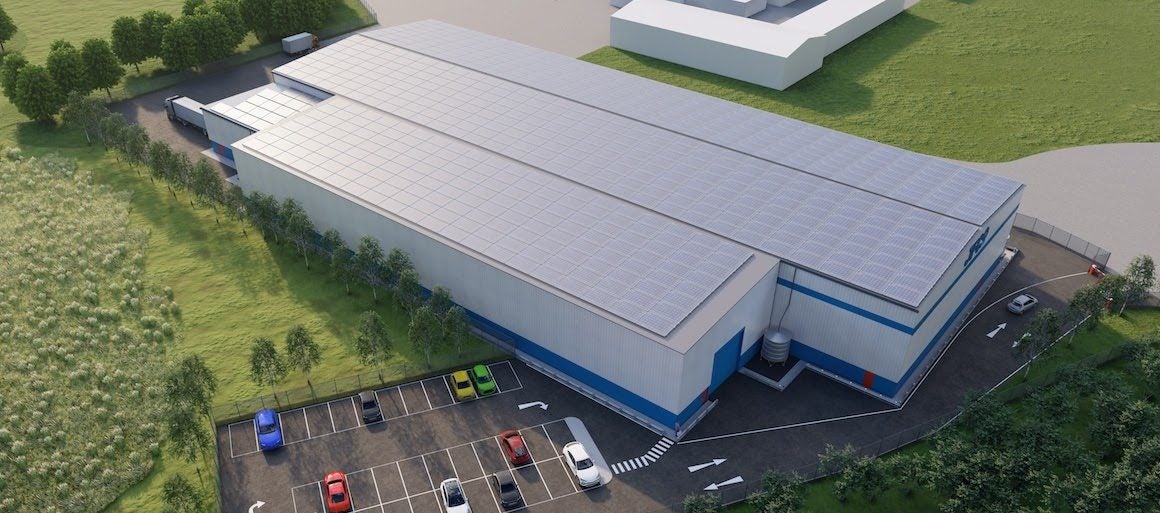
Jones Food Company is investing millions of pounds to build what the privately-owned UK business claims is the world’s largest vertical farm.
Founder James Lloyd-Jones told Just Food GBP20m (US$27.1m) is going into the new facility in Lydney, Gloucestershire, which includes construction, equipment and start-up costs. The 148,000 square-foot farm will be operational early in 2022.

Discover B2B Marketing That Performs
Combine business intelligence and editorial excellence to reach engaged professionals across 36 leading media platforms.
Backed by Ocado in 2019, the UK online retailer is supplying funding for the project, along with unnamed private investors that have contributed financing to the company over the last three years, chief executive Lloyd-Jones said.
Lloyd-Jones founded the firm in 2017 and opened a farm in Scunthorpe, Lincolnshire the following year.
The existing facility in Scunthorpe supplies fresh basil to more than 2,000 UK stores but the site in Lydney will be equipped for a range of herbs and leafy vegetables, with soft fruits, “small root veg” and cut flowers further down the line, he said.
“That allows us to go to any retailer and deliver the total SKU. We’ve got salad mixes for our own brand we should be launching, and we’re doing wholesale herbs for customers that we’ve been working with for the last two to three years,” Lloyd-Jones added.

US Tariffs are shifting - will you react or anticipate?
Don’t let policy changes catch you off guard. Stay proactive with real-time data and expert analysis.
By GlobalDataJones Food Company is also building a R&D facility in the city of Bristol, south-west England, to further commercialise its farm produce over the next 18 to 24 months.
Crops grown in vertical or indoor farms have been criticised for being overly expensive compared to conventionally grown produce because of the huge capital outlays and operating costs but Lloyd-Jones said the company is competitive. It supplies fresh produce directly to supermarkets rather than in self-growing in-store container units, a favoured method among some vertical-farm businesses.
“We believe in a price point, so we are matching an effectively imported crop and displacing that side so you can have year-round fresh produce for the UK. We sell at a price that is similar to imported produce rather than having a premium product with a premium price,” the CEO explained, declining to provide revenue numbers as a privately-owned company.
However, he said growth is running at about 20% month-on-month.
He added: “We’ve always been very keen on looking at the cost both when you’re building and when you’re operating. And it comes down to scale. We’ve harnessed renewable energy because it’s good for business, while it’s good for the environment. We’re working to be carbon-neutral in our supply chain in the coming six months.”
Jones Food Company also has overseas markets in its sights such as Europe, the Middle East, Australia and North America. Rather than exporting fresh produce, however, the firm is keen to export the technology and know-how.
“Exporting crops around the world seems fanciful now especially with how the world is going, so it’s better to grow in the local markets, export that technology and work with local partners in the local markets. There’s a real growing need to combat yield declines in field-grown and greenhouse crops and have more control over the supply chain and quality.”
Just Food analysis: Indoor farming and the prospects for profitability





